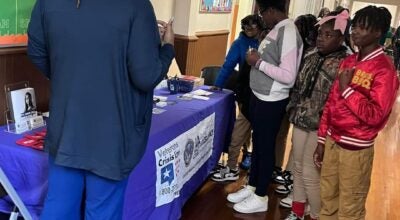Candidates remain quiet on I-85 expansion
Published 4:25 pm Friday, October 8, 2010
FROM STAFF REPORTS
Few people doubt the economic benefits of the expansion of Interstate 85 from Montgomery to the Mississippi state line. Those same individuals realize this project will need powerful political pull in Washington, and the Alabama delegation will have to work in tandem with state leaders.
As the preferred routes were announced about two months ago, Dallas County Probate Judge Kim Ballard said once the project is solidified, then the region will need to rally its politicians.
Those politicians could change over the course of the project. Before the year is out, the Black Belt will see a new representative in Congress and the state will see a new governor.
What are those running for Congress and state high office saying about the future of the 126.4-miles, $2.369 billion project?
The strongest candidate to come out publicly about the project is Terri Sewell, the Democratic candidate for the 7th Congressional District seat soon-to-be vacated by incumbent Artur Davis, who gave up an opportunity to run again when he launched an unsuccessful bid for governor.
Sewell is a product of Selma in the heart of the Black Belt. She attended a public hearing in Selma a couple of months ago during which the preferred route, one of 36 proposed by Volkert and Associates, the engineering consultants on the project.
Sewell said she’s behind the project, but has some concerns about the preferred route, which would take interstate traffic away from Selma’s hotels and restaurants by having an exchange nearly five miles away.
“Improving the infrastructure will be a top priority of mine in Congress,” Sewell said. “And I am supportive of the expansion of I-85, but I want to make sure that we find the best possible route to ensure we have the best possible economic impact for communities like Selma.”
She qualified her support by adding some work is required on the plan offered by Volkert and Associates at the last public hearing.
That plan showed the preferred route running south of Selma from Montgomery before turning north of Uniontown, dropping back south of Demopolis and traveling west, ending just north of Cuba at Interstate 20/59
Sewell’s voice joins other in concern about the route.
For example, Ken Tucker, the dean of the University of West Alabama Business College, has talked about the need for the route to take a more northern route, which he has said, “would provide a greater impact to the cities we care about: Selma, Uniontown, Demopolis and Livingston and York.”
Some leaders in the Black Belt agree the funding will have to come from federal dollars.
So far, the member of the Alabama delegation who has carried the most water for I-85’s extension has been Sen. Richard Shelby.
It was he who realized without access to infrastructure that has allowed the rest of the state to enjoy significant economic development; the Black Belt region has not yet met its economic potential.
In June 2005, Shelby secured $100 million to allow the state to begin planning, engineering, designing and constructing the project. Only, the money will go just about as far as some right-of-way acquisitions, said officials with Volkert and Associates.
That means more dollars for construction at a time when money is very tight, and Shelby’s ability to obtain more dollars is likely limited.
And according to a Shelby spokesperson, Pamela Simpson, the senator meant the allocation to get the project started, so the state could build it out.
In 2005, Gov. Bob Riley added $16 million in state funds and directed the Alabama Department of Transportation to expedite the I-85 extension study process.
That portion is completed for the most part.
What about the future?
This is a state election year. The two candidates for governor say they are supportive of the project, but offer little or no particulars other than to pay lip service to the expansion.
The Democratic nominee in the governor’s race, Ron Sparks, said he’d work with the federal government to see completion of the extension.
“This will bring much-needed jobs to the Black Belt and be the foundation of future economic growth,” Sparks said. “It will work well with my $1.4 billion roads programs, which will bring improved roads, bridges and new jobs to the region.”
Sparks has said the $1.4 billion would come from: $1 billion from state voters in November approving an amendment to take up $100 million annually for 10 years from the state trust fund fed by royalties from offshore natural gas wells; another $400 million would be borrowed in a bond issue backed by federal transportation dollars the state expects to receive.
Sparks has unveiled at least 20 projects of that roads plan in northern Alabama, but has yet to do so in the Black Belt.
The Republican nominee in the governor’s race, Dr. Robert Bentley, said he also supports the measure that voters will decide in November for building roads in the state.
Bentley said the I-85 extension is part of his plans for economic growth in the Black Belt.
“Dr. Bentley would work to secure federal funding for the highway through federal highway matching funds and through grants that could be made available for economically under-served areas,” said Rebekah Caldwell, a spokesperson for the Bentley campaign.





